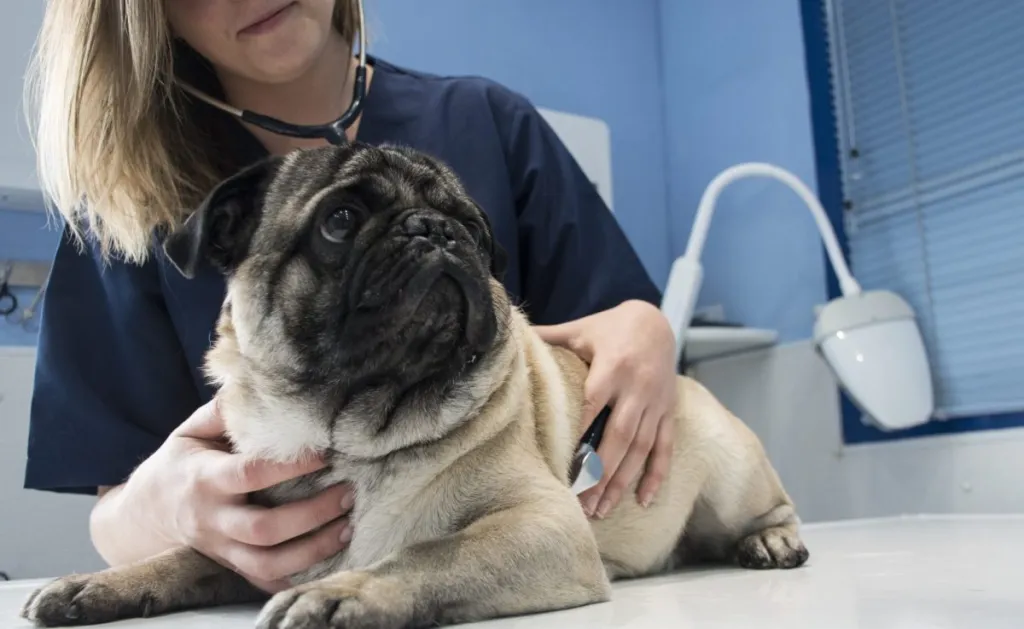Salmonella infection, or salmonellosis, is a condition in dogs caused by salmonella bacteria. It usually results in symptoms like vomiting and diarrhea, but it can lead to more serious conditions. If you see the signs of salmonella infection in your dog, consult your veterinarian right away. Here’s what you should know about the symptoms, causes, and treatments for salmonellosis in dogs.
Symptoms of Salmonella infection in dogs
Some dogs may experience no symptoms even though they have a salmonella infection. Instead, they become carriers of the disease without feeling strong effects from it. Others will show symptoms within 72 hours of infection.
Here are some signs that your dog might have salmonellosis:
- Diarrhea, sometimes with mucus in the stool
- Fever
- Vomiting
- Loss of appetite or anorexia
- Dehydration
- Increased heart rate
- Lethargy
- Depression
- Skin disease
- Swollen lymph nodes
- Shock
- Miscarriage in pregnant dogs
It’s important to get to your vet to address these symptoms, as they can lead to more serious conditions like gastroenteritis or sepsis. Generally, the main symptom of salmonellosis is acute diarrhea.
Causes of Salmonella infection in dogs
Salmonella infection caused by Salmonella spp bacteria is uncommon, as most dogs’ immune systems are strong enough to fight the bacteria off, and their digestive systems can mostly handle passing it. Though the bacteria is common, it’s unusual for it to cause disease in healthy canines. It can, however, spread between species, including humans, other pets, and even reptiles and birds.
The bacteria can be found in raw or undercooked meat, contaminated pet food, or saliva and feces from another infected animal.
Dogs with weaker immune systems are at greater risk for infection. Puppies and senior dogs are more prone to salmonellosis for this reason, as well as dogs who take antibiotics that may cause an imbalance of healthy bacteria in the gut.
Salmonella bacteria can be found in raw or undercooked meat and eggs, as well as pet food that has been contaminated or wet food that hasn’t been refrigerated. It’s transferred through the feces and saliva of other infected animals, which is one of many reasons you should never allow your dog to come into contact with the droppings of another dog or animal.
Veterinary treatments
Most cases of Salmonella infection in dogs are mild, and the only symptom may be acute diarrhea. Dogs’ immune systems will fight it off after a short time in these cases, though dogs will need a steady supply of fresh, clean water to stay hydrated after losing fluids from diarrhea or vomiting.
In more serious cases, your veterinarian may hospitalize your dog and provide intravenous fluid. If a blood infection or sepsis occurs, your dog may need a plasma or blood transfusion.
Vets may also prescribe steroids that can prevent shock in severe cases. Sometimes a vet will advise withholding food for 48 hours and keeping a dog separate from other pets to avoid spreading the infection.
In the majority of salmonella infections, adult dogs recover just fine.









